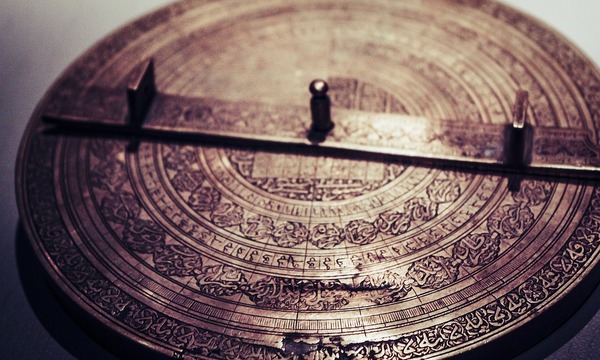As an Israelite coronation prayer, Psalm 72 describes the objectives for every new king in the Davidic dynasty. In this first installment, we explore the Solomonic themes, theocratic principles and social values of Psalm 72.
"The King is dead, long live the King!" This is the traditional proclamation made for a new monarch in various nations throughout world history. It seems like a contradictory statement. It simultaneously announces the death of the previous monarch and then salutes the new monarch in order to assure the public of political continuity. Sometimes we only hear the second part: āLong live the King (or Queen)!ā This exclamation is very old, and it was even used in ancient Israel, because we see that it occurs in Psalm 72. Verse 15 is dynamically translated: āLong may he liveā (ESV; NIV; NRSV), or āLong live the King!ā (NLT). The Hebrew just has a single word here: ·ÉĆ®įø„Ć®, literally āSo let him live/thrive!ā (cf., NJPS; NASB). The verse continues: āmay gold of Sheba be given to him! May prayer be made for him continually, and blessings invoked for him all the day!ā (ESV). In fact, Psalm 72 is a prayer for the king.
Ancient Near Eastern Genre And Setting
Psalm 72 is probably a coronation prayer that was used when one Davidic king dies and the new one comes to power. Psalm 72 was likely used for inauguration ceremoniesāroyal transitions within the Davidic Dynasty. Itās very similar to coronation hymns which are known from the ancient Near East (see Livingstone 1989:XXIII; Walton and Keener 2016:949).[1] One such coronation hymn is known from the time of Ashurbanipalās inauguration (ca. 668 BC). Ashurbanipal was the last significant king of the Neo-Assyrian Empire in the early seventh century BC (668-627 BC). His coronation hymn was likely recited by a priest after the death of his father, King Esarhaddon. Not surprisingly, the hymn shares many common themes with Psalm 72 (see Hilber 2009:377-379, 452). For example, the Ashurbanipal hymn calls for:
- Justice (Ps 72:1; Livingstone 1989 no. 11 line 8).
- Peace (Ps 72:3a, 7b; Livingstone 1989 no. 11 line 14).
- Long life and long reign (Ps 72:5, 15a; Livingstone 1989 no. 11 lines 2, r.1-2).
- Extensive kingdom (Ps 72:8; Livingstone 1989 no. 11 lines 3, 17).
- Leadership over other kings/kingdoms (Ps 72:10-11; Livingstone 1989 no. 11 lines r.1-2).
- Blessing (Ps 72:15b, 17; Livingstone 1989 no. 11 lines 19, r.3, 15-16)
- Grain and economic prosperity (Ps 72:16; Livingstone 1989 no. 11 lines 9-11).
- Fame/name (Ps 72:17a; Livingstone 1989 no. 11 lines r.1-2).
These themes, and others, are all present in Psalm 72, and the similarities between these two texts lead one to suggest that Psalm 72 is an Israelite example of the coronation hymn genre in the ancient Near East. (We will address some of the differences between Psalm 72 and the Ashurbanipal hymn at the end of our study.)
Coronation Prayer for a Davidic King
So we approach Psalm 72 as a coronation prayer for a Davidic king. Now the first observation we make about Psalm 72 is the superscription. The first word in the Hebrew text of verse 1 simply translates as āOf Solomon.ā What does this mean? Perhaps this means Solomon wrote the Psalm, but it might also mean that it was commissioned by him or it was just written with him in mind. We could just say that it marks the psalm as āSolomonicā in some way. (There is only one other Solomonic psalm in the Psalter--Psalm 127, a Song of Ascents positioned in Book V.) I imagine that Psalm 72 (or a version of it) was originally composed in the tenth century BC, capturing the idyllic themes of Solomonās reign, and it was probably recited at coronation ceremonies like the one undoubtedly held for King Rehoboam after Solomon died (ca. 931 BC; cf., 1 Kings 11:43; 12:1).[2] Some of the Solomonic themes that are present in this psalm are as follows:
- Verses 3 & 7 mention āpeaceā (shalom) for the people. Peace characterized Solomonās reign (1 Kings 2:33; 4:24 [āhe had peace on all sides around himā]; 5:12); and the name Solomon (Shlomo), which means āpeace,ā was likely his throne name (his birth name was probably Jedidiah; see 2 Sam 12:25).
- Verse 8 mentions worldwide dominion from the Mediterranean Sea to the Red Sea and from the Euphrates River to āthe ends of the earth.ā[3] This reminds us of the extent of Solomonās kingdom as described in 1 Kings 4:21a: āSolomon ruled over all the kingdoms from the Euphrates to the land of the Philistines and to the border of Egyptā (see also 1 Kings 4:24).
- Verses 9-11 mention tribes bowing down before the king and kings bearing tribute from the western reaches (Tarshish) and the southern reaches (Sheba and Seba--in Southwest Arabia and East Africa respectively).[4] Verse 15 also mentions gold from Sheba. These references are reminiscent of passages like 1 Kings 4:21b (āThey brought tribute and served Solomon all the days of his lifeā). Also, 1 Kings 10 documents the tribute from the queen of Sheba, including gold (1 Kings 10:2, 10), and tribute also came āfrom all the kings of the westā (1 Kings 10:15). Solomon even āhad a fleet of ships from Tarshishā (1 Kings 10:22), and every king ābrought his present, articles of silver and gold, garments, myrrh, spices, horses, and mules, so much year by yearā (1 Kings 10:25).
In addition to all these allusions to Solomonās reign, Psalm 72 also asks God to give justice and righteousness to the king and to his son (Ps 72:1-2).[5] This same word pair is also used by the queen of Sheba to describe Solomonās royal purposeāto āexecute justice and righteousnessā (1 Kings 10:9).[6] So the idyllic themes of Solomonās reign are rehearsed in Psalm 72, and the psalmist asks God to replicate these same blessings for the new king.
But there is another important theme that runs through Psalm 72, and that is the emphasis on theocracy and godly character. The new king is supposed to be ³Ņ“Ē»åās representative, one who reflects ³Ņ“Ē»åās character to Israel and to the world. Verses 1-2 say: āGive the king your justice, O God, and your righteousness to the royal son! May he judge your people with righteousness, and your poor with justice!ā The human king is to rule with ³Ņ“Ē»åās justice and righteousness. That is, ³Ņ“Ē»åās characterāas a just and righteous kingāis to be channeled through the human king. Deuteronomy 17 tells us that the human king must fear God and study the Scriptures in order to rule rightly (see Deut 17:18-19). Furthermore, we see here that the king is to rule ³Ņ“Ē»åās people, not his own people. The people actually belong to God, not to the human king. That is to say: the king should have a proper view of his subjects. He should not think of himself as better than the people (again, see Deut 17:20).
These two verses nicely encapsulate what theocracy is all about. The human king was to be the vice regent of YHWH. Remember that in the covenant relationship, YHWH is the suzerain and Israel is the vassal. That means God is the great king (the King of kings), and Israel must follow ³Ņ“Ē»åās stipulations/sanctions which are spelled out in the Torah. The Davidic king was supposed to function as āthe earthly headā of ³Ņ“Ē»åās kingdom (Hill and Walton 2009:270). That is the essence of theocracy.
At its core, theocracy is about theology, not polity. Theocracy does not require a monarchical form of government. Theocracy is operative when leaders submit to ³Ņ“Ē»åās authority as expressed in the Scriptures. Itās recognition that God is the ultimate Commander-in-Chief. In the Old Testament, theocracy was supposed to be normative whether the leader was Moses, Joshua, the judges, one of the Davidic kings or even if the leaders are priests, as in the post-exilic period. God is king in all eras, regardless of politics. And this is the same for us. Whether we are citizens of the USA or the UAE, God must be recognized as our king. Whether we are Republican or Democrat, God is our king. Whether we are privileged or poor, God is our king.
Justice and righteousness are ultimately defined by ³Ņ“Ē»åās character (Ps 89:14 says they are the foundation of ³Ņ“Ē»åās throne!); so his justice and righteousness hold higher authority than our political allegiances. Hassell Bullock explains this well: āWhile each of us identifies with a nation, we must always remember that our primary allegiance is not to state but to the Lord. We are Christians first, people of the Bible first and foremost. When our nation turns its back on justice and ³Ņ“Ē»åās way, then we need all the more to speak loudly and boldly for kingdom principlesā (Bullock 2015:551).
And that leads to another observation from Psalm 72. The Davidic king must express godly character through social justice. He is commissioned here to defend the poor, deliver the needy, and crush the oppressor (cf., vv. 4, 12, 13); to have pity on the weak and needy (v. 13); and to value life/blood and redeem people from oppression and violence (v. 14). All of these royal responsibilities are expressions of ³Ņ“Ē»åās values (cf., 1 Sam 2:8; Isa 25:4; 41:17; Ps 35:10; 69:33). This is what ³Ņ“Ē»åās justice looks like. God cares about the poor and the oppressed, and so should the king (cf., Prov 31:5, 8-9; Jer 21:12). God has compassion on the needy and he opposes oppression. God values life because itās a gift from him.
The point is that we also should care about such things (cf., Exod 23:6, 11; Deut 15:4, 7, 9, 11; 24:14; Prov 14:31; 31:20; Isa 1:17; Jas 1:27; 2:14-17; etc.). Just as Israelās king was to embody ³Ņ“Ē»åās values in order to promote human flourishing, so we all as ³Ņ“Ē»åās royal images should embody ³Ņ“Ē»åās values.[8] Social justice is what the Torah is all about! At least half of the laws in the Pentateuch are about the gritty details of social justice. At least half of the commandments in the Decalogue are about loving oneās neighbor. Both Jesus and the Apostle Paul made this point crystal clear: loving our neighbor is one of the ways they speak of fulfilling ³Ņ“Ē»åās whole law (cf., Matt 22:34-40; Mark 12:28-34; Luke 10:25-37; Rom 13:8-10; Gal 5:14). We can learn to live out ³Ņ“Ē»åās values based on the model of the ideal Davidic king as portrayed in Psalm 72.
Thus far we have described Psalm 72 as a coronation prayer for a Davidic king. Specifically, we discussed its Solomonic themes, theocratic principles and social values. These are the objectives for every new king in the Davidic dynasty. But the next thing we should notice is how Psalm 72 takes on an additional meaning in its literary context. The initial message of the psalm was related to royal inaugurations, but the incorporation of this psalm into the collection of the whole book of Psalms sets Psalm 72 into a broader framework.
In the next installment of this study, we will explore how Psalm 72 functions as Israelās prayer for the ideal king and as our prayer for the king of kings.
Endnotes:
- Coronation hymns are attested in Ur III, Middle Assyrian and Neo-Assyrian. For a visual example of a coronation ceremony, see the investiture scene from Mari (King Zimri-Lim; 18th century BC).
- Bullockās view that David composed this psalm āfor Solomonā (see Bullock 2015:544, 546) seems less likely to me. Bullock interprets the reference to āthe prayers of Davidā (72:20) as a statement about authorship (Bullock 2015:544, 546; cf. Heim 1995:234-235, 248). But the reference to āthe prayers of Davidā more likely refers to the whole Davidic collection of Books 1-2 (see Howard 2013:204; Webster and Beach 2010:107).
- This verse employs merism, a figure of speech employing two extremes to express totality, and it may capture the ancient Near Eastern view of the earth as a disk surrounded by water in every direction (see Hilber 2009:378).
- Tarshish is likely in southern Spain; Sheba in Yemen; Seba in Eritrea/Ethiopia (see Heim 1995:243; Longman 2014:272).
- These key terms are chiastically sequenced (ABBA) in vv. 1-2: justice-righteousness-righteousness-justice.
- The word pair is elsewhere used to describe Davidās reign (see 1 Chron 18:14). For other references to justice (mishpat) in Solomonās reign see 1 Kings 2:3; 3:11, 28; 6:12; 7:7; 8:58; 9:4; 11:33. For righteousness (tsedakah) in Solomonās reign see 1 Kings 3:6; 8:32.
- The term ābloodā in v. 14b refers to ālifeā (cf., HCSB; NET; NLT); see Longman 2014:272.
- Interestingly, humans are to āruleā (Qal, rdh) just like the king rules (Gen 1:26, 28; 1 Kgs 5:4; Ps 72:8; 110:2); see Bullock 2015:547.
Works Cited
Blomberg, C. āMatthewā in Commentary on the New Testament Use of the Old Testament, eds. G. K. Beale and D. A. Carson, 1-109. Grand Rapids: Baker, 2007.
Bullock, C. Hassell. Psalms. Vol. 1. Teach the Text Commentary Series. Grand Rapids: Baker, 2015.
Heim, K. M. āThe Perfect King of Psalm 72: An āIntertextualā Inquiryā in The Lordās Anointed: Interpretation of Old Testament Messianic Texts, eds. P. E. Satterthwaite, R. S. Hess and G. J. Wenham, 223-248. Grand Rapids: Baker Books/Carlisle: The Paternoster Press, 1995.
Hilber, J. āPsalmsā in Zondervan Illustrated Bible Background Commentary: Old Testament. Vol. 5, ed. J. H. Walton, 316-463. Grand Rapids: Zondervan, 2009.
Hill, A. E. and J. H. Walton, A Survey of the Old Testament. Third Edition. Grand Rapids: Zondervan, 2009.
Hossfeld, F.-L., and E. Zenger. Psalms 2. A Commentary on Psalms 51-100. Hermeneia. Minneapolis: Fortress, 2005.
Howard, D. M. āDivine and Human Kingshipā in The Psalms, eds. A. Schmutzer and D. M. Howard, pp. 197-207. Chicago: Moody, 2013.
Livingstone, A. Court Poetry and Literary Miscellanea. State Archives of Assyria III. Helsinki University Press, 1989.
Longman, T. Psalms: An Introduction and Commentary. Downers Grove: InterVarsity Press, 2014.
Mays, J., āThe Centre of the Psalmsā in Language, Theology, and the Bible, eds. S. E. Balentine and J. Barton, pp. 231-46. Oxford: Clarendon, 1994.
Pao, D. W., and E. J. Schnabel. āLukeā in Commentary on the New Testament Use of the Old Testament, eds. G. K. Beale and D. A. Carson, 251-414. Grand Rapids: Baker, 2007.
Ryken, L., and M. L. Mead, A Readerās Guide through the Wardrobe. Downers Grove: InterVarsity Press, 2005.
Schnittjer, G. E. The Torah Story: An Apprenticeship on the Pentateuch. Grand Rapids, Zondervan, 2006.
Selman, M. J. āMessianic Mysteriesā in The Lordās Anointed: Interpretation of Old Testament Messianic Texts, eds. P. E. Satterthwaite, R. S. Hess and G. J. Wenham, 281-302. Grand Rapids: Baker Books/Carlisle: The Paternoster Press, 1995.
Walton, J. H. Ancient Near Eastern Thought and the Old Testament: Introducing the Conceptual World of the Hebrew Bible. Second edition. Grand Rapids: Baker, 2018.
_______. āPsalms: A Cantata About the Davidic Covenantā Journal of the Evangelical Theological Society 34/1 (1991): 21-31.
Walton, J. H., and A. E. Hill. Old Testament Today: A Journey from Original Meaning to Contemporary Significance. Grand Rapids: Zondervan, 2004.
Walton, J. H., and C. Keener, NIV Cultural Backgrounds Study Bible. Grand Rapids: Zondervan, 2016.
Webster, B. L., and D. R. Beach. The Essential Bible Companion to the Psalms. Grand Rapids: Zondervan, 2010.
Wilson, G. H., The Editing of the Hebrew Psalter. Scholars Press, 1985.
Wright, C. J. H. Knowing Jesus through the Old Testament. Downers Grove: InterVarsity Press, 2014.
 911±¬ĮĻĶų University
911±¬ĮĻĶų University


.jpg)
.jpg)